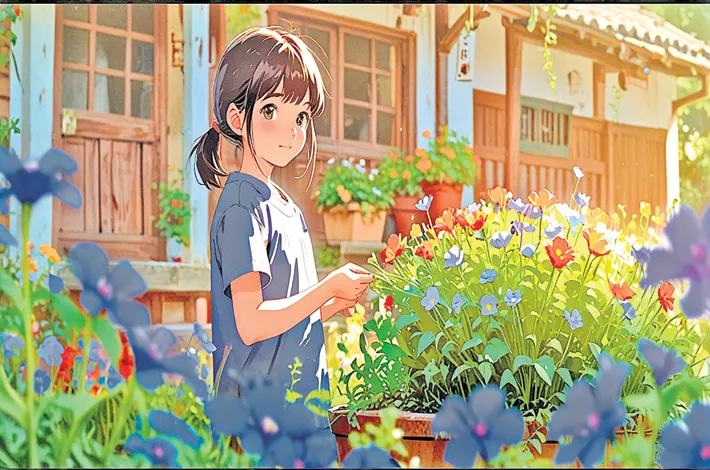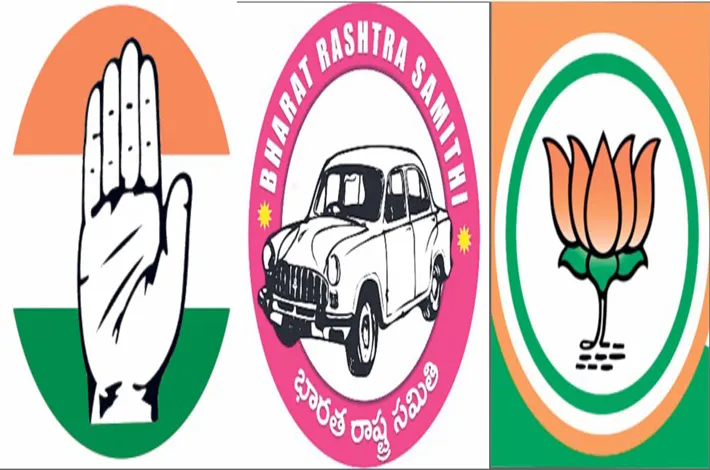The Great Garden Fiasco & you too can fail !
24-07-2025 12:00:00 AM

In the little town of Sunnypatch, nestled between rolling hills and a babbling brook, every spring the children gathered for the Great Garden Contest. It was a tradition as old as the oak tree in the town square, where kids planted seeds, tended gardens, and hoped to grow the biggest, brightest flowers or the tastiest vegetables. The winner got a shiny blue ribbon and bragging rights for a year. This spring, ten-year-old Lila was determined to win.
Lila had a plan. She’d read every gardening book in the Sunnypatch library, borrowed tools from her neighbor Mr. Grubb, and sketched a garden layout that looked like a rainbow exploded. She dreamed of growing sunflowers so tall they’d tickle the clouds. Her friends, Milo, Tara, and Sam, were just as excited. Milo wanted to grow pumpkins big enough to sit in. Tara aimed for carrots sweeter than candy. Sam, always the dreamer, wanted a beanstalk that reached the stars.
The contest began with a burst of energy. The children dug, planted, and watered, their laughter echoing across the town. Lila carefully placed her sunflower seeds in neat rows, whispering to them, “Grow big, okay?” Milo hauled dirt for his pumpkin patch, Tara sang to her carrot seeds, and Sam climbed a ladder to plant his beans “closer to the sky.” Everyone was sure they’d succeed.
But nature, as Mr. Grubb often said, had a mind of its own. A week after planting, a storm rolled in, dumping rain that turned the gardens into muddy soup. Lila’s sunflower seeds washed away. Milo’s pumpkin patch became a puddle. Tara’s carrots refused to sprout, and Sam’s beans were nowhere near the stars—they were just soggy specks in the dirt. The children stared at their ruined gardens, hearts sinking.
“I failed,” Lila said, kicking a clump of mud. “I read all those books for nothing.”
“My pumpkins are a joke,” Milo groaned, flopping onto the ground.
“My carrots hate me,” Tara added, her voice small.
Sam just sighed. “No beanstalks to the moon for me.”
The next day, the children moped in the town square, their usual chatter replaced by gloom. Old Mrs. Petal, who judged the contest, noticed their long faces. She hobbled over, her cane tapping the cobblestones, and sat on a bench. “What’s this? You all look like your plants grew frowns instead of flowers.”
“We failed,” Lila said. “Our gardens are disasters.”
Mrs. Petal chuckled, her eyes twinkling. “Failed? Oh, dearies, you’ve just started. Let me tell you a story.” The children gathered close, curious despite their disappointment.
“When I was your age,” Mrs. Petal began, “I wanted to grow the biggest roses in Sunnypatch. I planted a dozen bushes, watered them, sang to them, everything. But a heatwave hit, and those roses shriveled like raisins. I cried for days, thinking I was no good. But my pa said, ‘Petal, failure’s just dirt. You learn from it, and something better grows.’ So, I tried again. I learned to shade my roses and water them differently. Next year, my roses won the ribbon.”
The children blinked. “You failed?” Milo asked, shocked. Mrs. Petal was a gardening legend.
“Oh, dozens of times!” she said. “My tomatoes flopped, my tulips drooped, my zucchini turned to mush. Each time, I learned something new. Failure’s not the end—it’s the beginning of getting better.”
Lila frowned. “But what if we’re just bad at gardening?”
Mrs. Petal tapped her cane. “Nobody’s bad at anything forever. You try, you fail, you learn, you grow. Look at Mr. Grubb. He burned every pie he baked until he learned to lower the oven heat. Now his apple pies are famous!”
The children giggled, imagining Mr. Grubb’s kitchen disasters. Mrs. Petal’s words stuck with them, and they decided to try again. Lila studied how to protect seeds from heavy rain. Milo learned pumpkins needed better drainage. Tara discovered carrots liked looser soil, and Sam found out beans needed stronger trellises, not ladders to the sky.
They worked together, sharing tips and tools. Lila helped Milo build a raised garden bed. Tara showed Sam how to mix compost. Sam gave Lila a trellis for her sunflowers. The gardens didn’t look perfect, but they were growing. Some sunflowers sprouted, a few pumpkins peeked out, carrots pushed through the dirt, and Sam’s beans climbed a sturdy frame. Not everything worked—Lila’s sunflowers were short, Milo’s pumpkins were small, Tara’s carrots were wonky, and Sam’s beans stayed firmly on Earth—but the children were proud.
On contest day, the town square buzzed with excitement. Mrs. Petal walked through the gardens, nodding and smiling. No one’s garden was perfect, but every child had something to show. When it was time to announce the winner, Mrs. Petal held up the blue ribbon and said, “This year, the ribbon goes to… everyone!”
The children gasped. “Everyone?” Tara asked.
“Yes!” Mrs. Petal said. “You all failed at first, but you didn’t give up. You learned, you helped each other, and you grew. That’s what this contest is about—not perfect gardens, but growing hearts.”
The children cheered, their disappointment forgotten. They realized failure wasn’t a monster—it was just a step. Lila grinned, imagining next year’s sunflowers. Milo planned bigger pumpkins. Tara dreamed of sweeter carrots, and Sam, well, he still wanted that beanstalk to the stars. That night, Sunnypatch glowed with a new kind of pride. The children hung their shared ribbon in the town square, a reminder that failure was part of life, like rain or sunshine. They could fail, learn, and try again—and that was no big deal at all.








